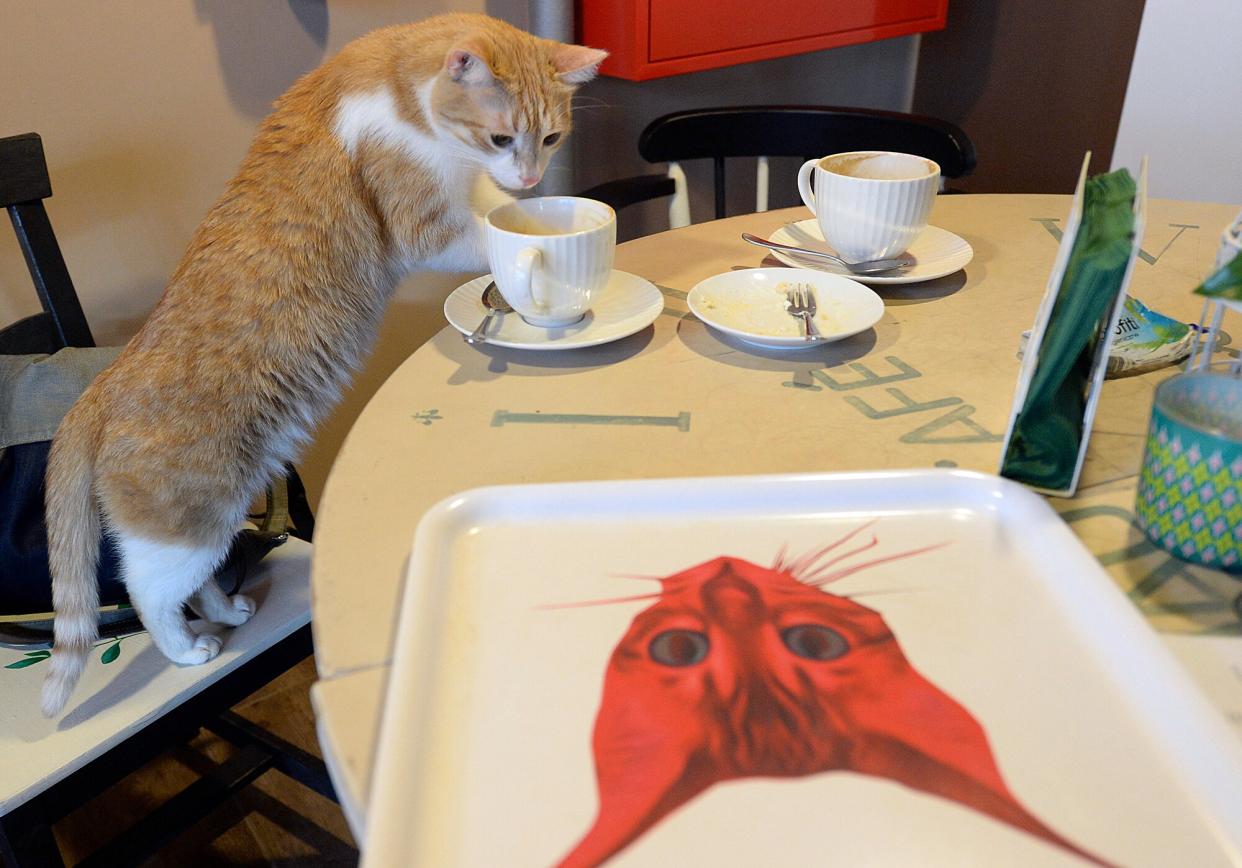Polish Institute Classifies Cats As Invasive Species: 'I Don't Have Anything Against Cats'

Czarek Sokolowski/AP Photo
A scientific institute in Poland officially classified domestic cats as an "invasive alien species."
The decision, made this month by the state-run Polish Academy of Sciences, cited the damage that domestic cats cause to birds and other wildlife, according to the Associated Press.
Wojciech Solarz, the biologist at the institute who the AP described as "the key scientist" behind the decision, told the AP on Tuesday that backlash in the country toward the designation may be a result of erroneous reports that created a "false impression" the Polish Academy of Sciences had called for feral and other cats to be euthanized.
According to Solarz, the institute has listed over 1,780 species as invasive on a national database run by the Institute of Nature Conservation and never received objections to these designations — until they added cats to the list.
RELATED: Humane Society Saves 80 Dogs From Ohio House in its Largest Rescue Ever
Solarz told the AP Tuesday that the criteria needed for a species' addition to the list "are 100% met by the cat." He said there is a "growing scientific consensus" that cats' hunting and killing of birds and small mammals harms biodiversity.
Last week, Solarz appeared on television in Poland to discuss the matter with veterinarian and author Dorota Suminska, who argued that cats are "unfairly assigned too much blame," according to the AP.

Czarek Sokolowski/AP Photo
Suminska, 64, said that pollution and urban building development harm biodiversity and asked "if man is on the list of non-invasive alien species" in her defense of cats.
According to Solarz, cats kill roughly 140 million birds in Poland every year.
Never miss a story — sign up for PEOPLE's free daily newsletter to stay up-to-date on the best of what PEOPLE has to offer, from juicy celebrity news to compelling human interest stories.
The Polish Academy of Sciences published a statement on its website earlier this month to address the matter and attempted to clarify its position. It said it was "opposed to any cruelty toward animals," according to the AP.
The institute also stated that "Felis catus," the scientific name for the housecat, is considered alien to Europe "from a strictly scientific point of view" given that the species was domesticated thousands of years ago in the ancient Middle East.
RELATED: Pennsylvania Man Who Was Strangled by 18-Foot Boa Constrictor Has Died, Coroner Says
The Polish Academy of Sciences recommended that cat owners limit the amount of time their pets spend outdoors during bird breeding season to reduce the feline's harmful impact on biodiversity, according to the AP.
"I have a dog, but I don't have anything against cats," Solarz told the AP.
In the United States, the National Invasive Species Information Center, which falls under the U.S. Department of Agriculture, defines an "invasive species" as "non-native (or alien) to the ecosystem under consideration" and "whose introduction causes or is likely to cause economic or environmental harm or harm to human health."

